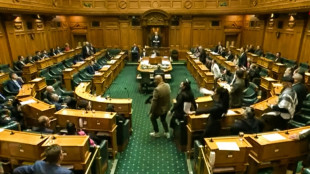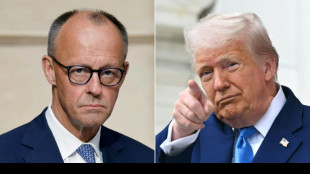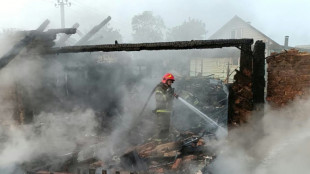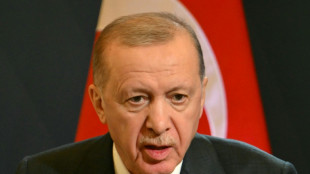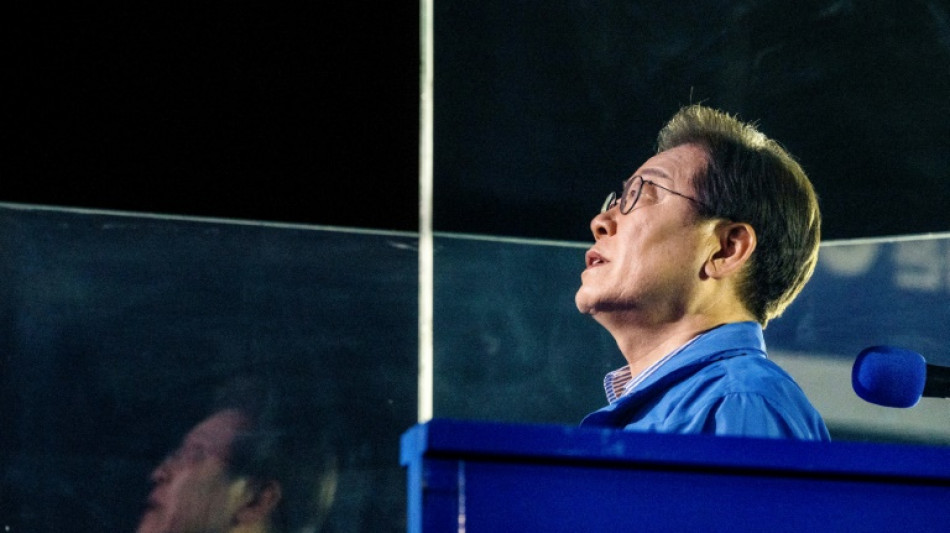

South Korea's Lee on course to win presidency by landslide
Centre-left Lee Jae-myung was set Tuesday to win South Korea's presidential election by a landslide, capping months of political chaos in a vote which drew the highest turnout in nearly three decades.
Six months to the day after ex-president Yoon Suk Yeol plunged the country into crisis with his disastrous declaration of martial law, all three major broadcasters projected Lee as the likely winner after 11:00 pm (1400 GMT).
With 37 percent of the votes counted, Lee of the left-leaning Democratic Party leads with 48.75 percent, followed by challenger Kim Moon-soo of the conservative People Power Party (PPP) with 42.92 percent.
An earlier exit poll by the three major broadcasters also projected Lee winning 51.7 percent of the vote.
Voter turnout was 79.4 percent -- the highest since 1997.
Hundreds of Lee's supporters broke into cheers outside the National Assembly, as party officials watching from inside the parliament started a chant of "Lee Jae-myung" as the exit poll results were announced.
For weeks, major polls had put Lee well ahead of Kim -- Yoon's labour minister -- who struggled with party infighting and failed to convince a third party candidate to unify and avoid splitting the right-wing vote.
After months of turmoil and a revolving door of lame-duck acting leaders, many South Koreans said they were eager for the country to move forward.
"I hope the next president will create an atmosphere of peace and unity rather than ideological warfare," cab driver Choi Sung-wook, 68, told AFP as he cast his ballot.
Noh Min-young, 20, who has been protesting in the streets since Yoon declared martial law, told AFP she was "relieved" at the exit poll projection.
"It's been a tough road. I'm happy because it feels like we've seized the opportunity that so many people fought for over the past six months."
South Korea's next leader will take office almost immediately -- as soon as the National Election Commission finishes counting the votes and validates the result, likely early Wednesday.
He will face a bulging in-tray, including global trade vicissitudes chafing the export-driven economy, some of the world's lowest birth rates and an emboldened North Korea rapidly expanding its arsenal.
- 'Turning point' -
But the fallout from Yoon's martial law declaration, which has left South Korea effectively leaderless for the first months of US President Donald Trump's tumultuous second term, was the decisive factor in the election, experts said.
The vote was "largely viewed as a referendum on the previous administration," Kang Joo-hyun, a political science professor at Sookmyung Women's University, told AFP.
Yoon's impeachment over his martial law bid, which saw armed soldiers deployed to parliament, made him the second straight conservative president to be stripped of office after Park Geun-hye in 2017.
"Lee's victory signals that the Korean public rejects illiberal and undemocratic measures such as martial law," Gi-Wook Shin, a sociology professor at Stanford University, told AFP.
"This moment will likely be remembered as a peculiar and consequential turning point in South Korea's political history."
But Lee's success is due as much to his rivals' failings as his own strengths, said Minseon Ku, a postdoctoral researcher at the William & Mary Global Research Institute.
"Lee has a criminal record and was involved in several political and personal scandals, which made him deeply unpopular among many voters in the 2022 presidential election," Ku said, referring to Lee's unsuccessful run for top office, when he lost to Yoon by a narrow margin.
His rise to the presidency is "a reflection of the deep political turmoil South Korea has been experiencing".
South Korean presidents serve a single five-year term.
Ballot counting stations swung into action after polls closed at 8:00 pm, AFP reporters saw, with boxes of ballots arriving at the Seoul National University Gymnasium in Gwanak-gu district.
Lee -- who survived an assassination attempt last year -- has been campaigning in a bullet-proof vest and delivering speeches behind a glass protective shield.
M.Sullivanv--NG
